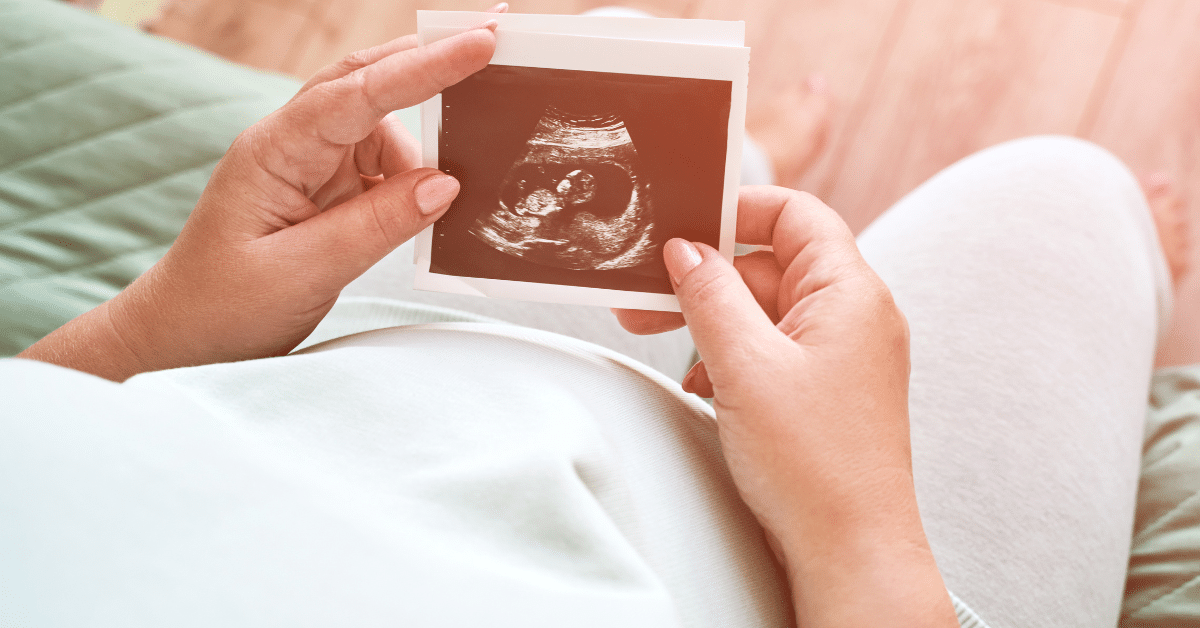The second month of pregnancy is a time of rapid development and change for you and your baby. At 8 weeks pregnant, you’re nearing the end of this crucial early stage.
What to Expect at 8 Weeks Pregnant
At this point, you might be experiencing a range of new symptoms. Some typical 8 weeks pregnancy symptoms include:
- Breast tenderness
- Fatigue
- Frequent urination
Your baby is also undergoing significant changes. While still tiny, measuring less than 1/2 inch, essential organs and structures are beginning to form. The heart is beating, and major body systems are starting to develop.
This period is critical for fetal development, so maintaining good health and regular check-ups is essential. Your journey through the second month of pregnancy sets the foundation for the coming months.
Fetal Development Milestones During Weeks 5 to 8
During the second month of pregnancy, embryo growth kicks into high gear. Your baby is going through critical development stages that lay the foundation for future growth.
Key Developments
Weeks 5-6
- The heart begins to form and beat.
- Early formation of the brain and spinal cord.
- Development of significant blood vessels starts.
Weeks 7-8
- Emergence of tiny limb buds that will grow into arms and legs.
- Development of facial features, including eyes, ears, and mouth.
- Formation of the digestive system begins.
By the end of the eighth week, your baby is about the size of a small raspberry, measuring less than half an inch long. Though tiny, this period is vital for laying down all the structures that will continue to develop throughout pregnancy.
These early weeks are crucial as your baby transitions from an embryo to a fetus. The groundwork for all major organs and body systems occurs during this time, making it a dynamic phase in baby development.
Common Symptoms Experienced at 8 Weeks Pregnant
By the time you hit eight weeks pregnant, you might notice a variety of physical symptoms that are common during this stage:
- Breast tenderness: Your breasts may feel sore or sensitive due to increased hormone levels.
- Fatigue: Feeling unusually tired? Your body is working overtime to support your growing baby.
- Frequent urination: The growing uterus puts pressure on your bladder, meaning more trips to the bathroom.
- Digestive changes can also make their presence known. Morning sickness is a classic symptom at this stage:
- Nausea and vomiting (morning sickness): Despite its name, it can strike at any time of the day. Keeping some crackers by your bedside might help ease the early morning nausea.
- Heartburn: Hormonal changes can relax the valve between your stomach and esophagus, leading to that uncomfortable burning sensation.
These symptoms are all part of the journey and indicate your body is doing exactly what it needs to nurture your little one.
Specific Changes in the Mother's Body During the Second Month
During the second month of pregnancy, your body undergoes several significant changes. Here’s what to expect:
- Increased Blood Production: Your body raises blood production to support your growing baby. This increase can cause your heart rate to speed up, sometimes leading to sensations of palpitations or a racing heart.
- Hormonal Fluctuations: Hormones like progesterone and estrogen surge during this time, which can lead to discomfort. These hormonal changes often result in sleep disturbances, making it difficult to get a good night’s rest.
Feeling bloated during pregnancy is also common at this stage. Increased blood flow and hormonal shifts can leave you feeling unusually full or gassy. Understanding these changes can help you better navigate the second month of pregnancy.
Monitoring Health During Pregnancy: The Importance of Prenatal Care
Prenatal care is essential for ensuring a healthy pregnancy. Regular appointments with your healthcare provider allow continuous maternal and fetal health monitoring. These check-ups can help identify any potential issues early on, ensuring timely intervention.
Critical aspects of prenatal care include:
- Routine Check-ups: Regular visits help track your baby’s growth and development. They include ultrasounds, blood tests, and other screenings to monitor your health.
- Symptom Monitoring: Communicating openly with your healthcare provider about any symptoms you’re experiencing is crucial. Discussing these with your provider can lead to better management strategies, whether morning sickness or unusual discomfort.
By staying proactive and engaged in your prenatal care, you’re laying a solid foundation for a healthy pregnancy journey.
Managing Symptoms at 8 Weeks Pregnant: Practical Tips
Dealing with pregnancy symptoms can be a challenge, but there are ways to find relief.
Strategies for Alleviating Morning Sickness
Feeling queasy and dealing with morning sickness? Try these tips:
- Eat Small, Frequent Meals: Keeping your stomach from being empty can help. Nibble on crackers or dry toast.
- Stay Hydrated: Sipping water, herbal teas, or ginger ale can soothe an upset stomach.
- Avoid Strong Odors and Food Aversions: Avoid foods or smells that make you feel nauseous. Listen to your body and steer clear of triggers.
Managing Fatigue Through Rest and Self-Care Practices
Pregnancy fatigue is real! Here’s how to cope:
- Prioritize Sleep: Aim for 7-9 hours of sleep each night. Daytime naps can also be beneficial.
- Create a Relaxing Routine: Wind down with gentle activities like reading or warm baths.
- Stay Active: Light exercise like walking or prenatal yoga can boost energy levels.
Taking care of yourself is crucial during this time. Each small step helps in managing these common symptoms effectively.
Seeking Support and Guidance During Your Pregnancy Journey
Navigating the second month of pregnancy can feel overwhelming. It’s essential to seek support during pregnancy from your healthcare providers and communities. They can offer:
- Expert advice on managing symptoms and monitoring fetal development.
- Emotional support to help handle the rollercoaster of feelings you might experience.
- Resources and referrals for prenatal classes, support groups, and more.
Don’t hesitate to reach out; you’re not alone. Connecting with others who understand can make a world of difference.
FAQs About the Second Month of Pregnancy
At 8 weeks pregnant, you may experience:
- Breast tenderness
- Fatigue
- Frequent urination
- Nausea and vomiting (morning sickness)
- Heartburn
By the end of the eighth week, your baby will be about the size of a small raspberry, less than half an inch long.
Weeks 5-6:
- The heart begins to form and beat.
- Early formation of the brain and spinal cord.
- Development of major blood vessels starts.
Weeks 7-8:
- Tiny limb buds will emerge, growing into arms and legs.
- Development of facial features, including eyes, ears, and mouth.
- Formation of the digestive system begins.
Prenatal care ensures continuous monitoring of both maternal and fetal health. Regular check-ups can help identify potential issues early on, ensuring timely intervention.
To alleviate morning sickness:
- Eat small, frequent meals.
- Stay hydrated by sipping water, herbal teas, or ginger ale.
- Avoid strong odors and food aversions that trigger nausea.
To cope with pregnancy fatigue:
- Prioritize sleep by aiming for 7-9 hours each night.
- Create a relaxing routine with gentle activities like reading or warm baths.
- Stay active with light exercises such as walking. or prenatal yoga.
Seek support from healthcare providers and communities for:
- Expert advice on managing symptoms and monitoring fetal development.
- Emotional support to handle feelings you might experience.
- Resources and referrals for prenatal classes, support groups, and more.





